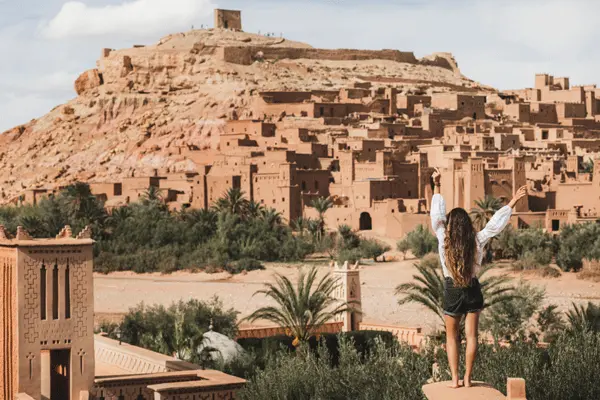Planning a trip to Morocco is an exciting prospect, filled with visions of bustling souks, vast deserts, and ancient cities. But one of the most crucial questions you'll ask is: "When is the best time to visit Morocco?" The answer isn't a single month, but rather a season that best aligns with your travel dreams. The country's diverse geography—from the Atlas Mountains to the Atlantic coast and the Sahara Desert—means the weather varies dramatically. This guide will walk you through each season to help you find the perfect time for your Moroccan adventure.
At a Glance: The Best Times to Go to Morocco
- Best Overall (Great Weather): Spring (March to May) and Autumn (September to November).
- Best for Budget & Fewer Crowds: Winter (December to February), outside of the holidays.
- Best for Coastal Beach Time: Summer (June to August).
- Best for the Sahara Desert: Spring and Autumn to avoid extreme temperatures.
A Deep Dive into Morocco's Seasons
Spring (March - May): The Peak Season
Widely considered the absolute best time of year to visit Morocco, spring offers idyllic weather. The country bursts into life with lush green landscapes and blooming wildflowers, especially in the mountain valleys. The weather in Morocco in March and April is pleasantly warm and sunny, making it perfect for exploring imperial cities like Marrakech and Fes without the intense summer heat. It's also the prime season for a Sahara desert tour, as daytime temperatures are comfortable and nights are mild.
Pros: Beautiful scenery, comfortable temperatures for all activities, long sunny days.
Cons: This is peak tourist season, so expect larger crowds and higher prices for flights and accommodation.

Summer (June - August): Sun, Sea, and Sizzle
Summer in Morocco is hot, particularly in inland cities like Marrakech and Fes, where temperatures can soar above 40°C (104°F). The Sahara is scorching and best avoided during the day. However, this is the perfect time to explore Morocco's beautiful coastline. Towns like Essaouira and Tangier offer a refreshing coastal breeze, making them ideal summer escapes. The weather for Morocco in June is a great balance before the peak heat of July and August arrives.
Pros: Ideal for beach holidays, fewer crowds in the major cities, long daylight hours.
Cons: Extreme heat in the interior and the desert can be challenging and limits sightseeing options.
Autumn (September - November): The Second Spring
Autumn mirrors spring in offering wonderfully pleasant weather, making it another contender for the best month to visit Morocco. The summer heat subsides, and the landscapes, refreshed by the first rains, are beautiful. Morocco weather in October and November is perfect for trekking in the Atlas Mountains and exploring the Sahara Desert comfortably. The crowds from spring have thinned, offering a more relaxed travel experience with still-plentiful sunshine.
Pros: Excellent weather, fewer crowds than spring, pleasant for all activities.
Cons: Can be slightly less green than the springtime.
Winter (December - February): Cool and Quiet
Thinking of visiting Morocco in December or January? Winter can be a fantastic time to travel. The southern regions and imperial cities enjoy mild, sunny days, though evenings and nights are chilly. It's an ideal time for city exploration without the crowds. The High Atlas Mountains will be snow-capped, offering stunning vistas and even opportunities for skiing near Ifrane! The Morocco weather in February begins to warm up, hinting at the coming spring.
Pros: Fewest tourists, lower prices, pleasant daytime weather for sightseeing in cities.
Cons: Nights are cold, especially in the desert. The Atlas Mountains may have road closures due to snow. Shorter daylight hours.
Special Consideration: Traveling During Ramadan
Traveling to Morocco during the Islamic holy month of Ramadan (the dates change annually) offers a unique cultural experience. While many restaurants and shops may have shorter hours during the day, the evenings come alive with celebratory feasts (iftar). It’s a time of great hospitality and spirituality. You'll need to be respectful of those fasting, but it can be a deeply rewarding time to visit.
Conclusion: Your Perfect Moroccan Trip Awaits
Ultimately, the best time to visit Morocco depends on your personal preferences and the experiences you seek. Spring and autumn offer the most versatile and comfortable weather for a classic Morocco tour, while winter and summer provide unique opportunities for those looking to avoid crowds or enjoy specific regions.
Ready to plan your unforgettable Moroccan adventure? Contact us today, and our experts will help you craft a custom Morocco travel package tailored to the perfect season for you.